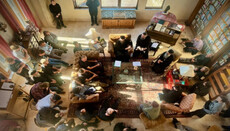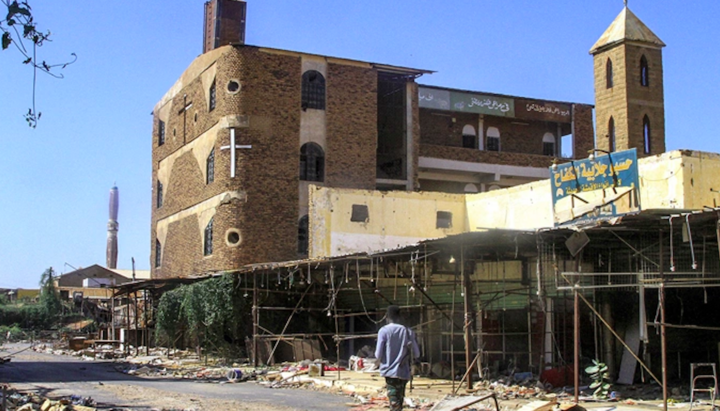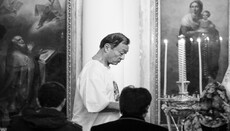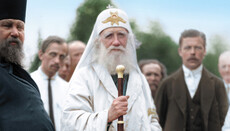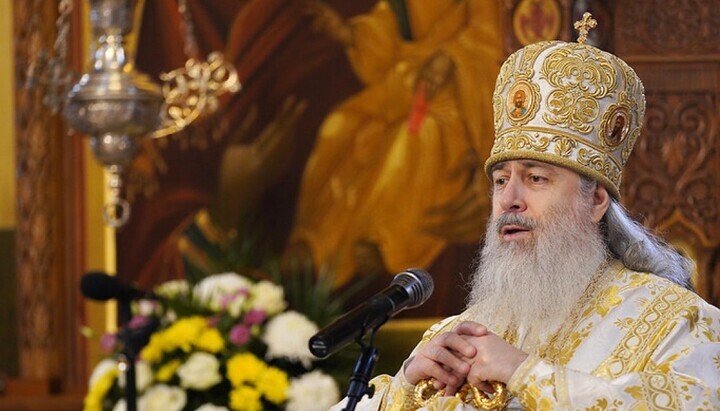Nebraska Pilgrims Pray at Gravesite of 'Apostle to the Plains'
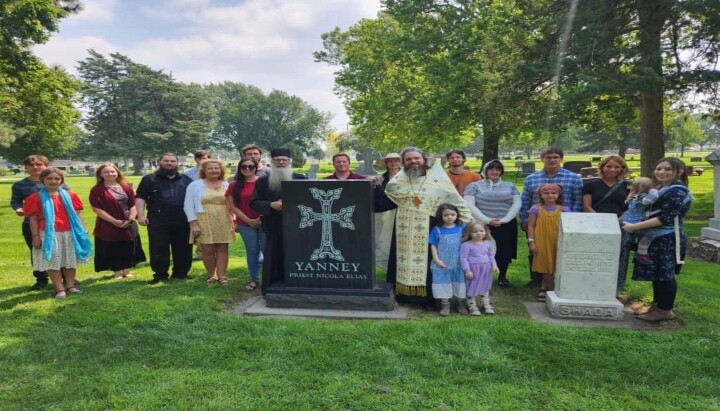
Fr. Nicola Yanney - considered a saint by many in the Midwest - was the first priest ordained by St. Raphael of Brooklyn and reposed in 1918 after ministering to those suffering from Spanish Flu.
LINCOLN — This past Saturday, 20 pilgrims from St. John of Kronstadt Orthodox Church (OCA) in Lincoln, Neb., ventured west to Kearney to visit and pray at the gravesite of Fr. Nicola Yanney, a beloved priest of the early 20th-century whose story of service and sacrifice has led many in the region to recognize him as a saint.
According to the OCA's Diocese of the Midwest, many of the parishioners from Lincoln had read about Fr. Nicola in "Apostle to the Plains: The Life of Father Nicola Yanney," a book published by Ancient Faith.
Inspired by the Antiochian priest who was the first to ever be ordained by St. Raphael of Brooklyn and who ministered to roughly 100 Orthodox communities throughout the Great Plains, the pilgrims set out to the cemetery where Fr. Nicola's gravesite is and to visit St. George Orthodox Church, where the holy priest served when he was at home (which wasn't often).
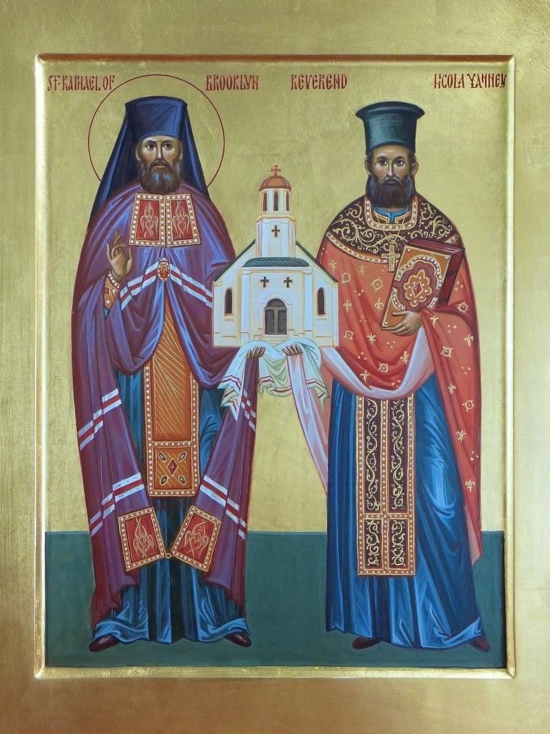
St. Raphael Hawaweeny and Fr. Nicola Yanney holding St. George Church in Kearney. Source: Orthodox History
Although Fr. Nicola was the first permanent pastor at St. George Orthodox Church in Kearney, he traveled to 19 different states and ministered to communities on the far reaches of Missouri, Michigan, Minnesota, North Dakota, Iowa, Illinois, Wisconsin, Kentucky, Kansas, and, of course, Nebraska.
Welcomed by Fr. Christopher Morris, who serves as the parish priest at St. George today, the pilgrims from Lincoln were also joined by a group from the parish that included one of Fr. Nicola's great-grandsons. Following a quick talk about Fr. Nicola and his character, Fr. Joseph Winsler served a panakhida service at the gravesite.
"Following the prayer at the gravesite, the pilgrims enjoyed the hospitality of St. George Church, where they shared a meal and toured the temple," the Diocese of the Midwest shared in a release. "As Fr. Christopher showed them the icons in the narthex featuring St. Raphael and Fr. Nicola, the pilgrims were especially delighted to hear that records were discovered which tell the latter had actually ministered to an Orthodox community in Lincoln."
The story of Fr. Nicola Yanney is one of absolute commitment to the Orthodox faith and way of life in the face of many adversities. Immigrating to Nebraska from Syria in the 1890s, Fr. Nicola's wife, Martha, died in childbirth in the year 1900 and left him widowed with five children. Not only this, but one of the Yanney children had also reposed shortly after birth.
Despite the immense sorrow and drastic changes to his life that Fr. Nicola had already struggled with, he was chosen by the local Orthodox community to become their priest and later became the first priest to be ordained by St. Raphael of Brooklyn.
As one shepherd, he covered a territory that is comparable to the Antiochian Orthodox Diocese of Wichita and Mid-America of today. He would spend months away from home, administering the sacraments of the Church to the "lost sheep of Antioch," which St. Raphael had also sought to find. Many of these individuals had immigrated thinking they would never see an Orthodox priest again.
During the Spanish Flu pandemic, Fr. Nicola continued ministering to those who were sick despite dealing with his own health issues. Hearing confessions, administering the Eucharist and offering prayers for those who caught the flu and their families, Fr. Nicola himself reposed on October 28, 1918, at the age of 48 due to exhaustion and the Spanish Flu.
In this way, he is considered to be a martyr by the faithful of the region.
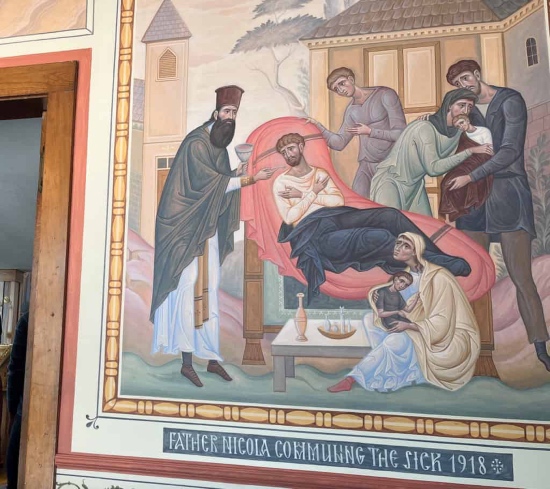
Photo: domoca.org
At the 100th anniversary of Fr. Nicola's repose, a diocesan pilgrimage to Kearney attended by laypeople and clergy alike commemorated the priest who had come to be known as the "Apostle to the Plains." At the event, Matthew Namee of Orthodox History and the Orthodox Studies Institute offered the keynote address. He concluded it by saying:
"I suppose I should close by saying, 'May his memory be eternal,' but there could be little doubt about that. Better perhaps to say, 'Holy Father Nicola, pray to God for us.'"
